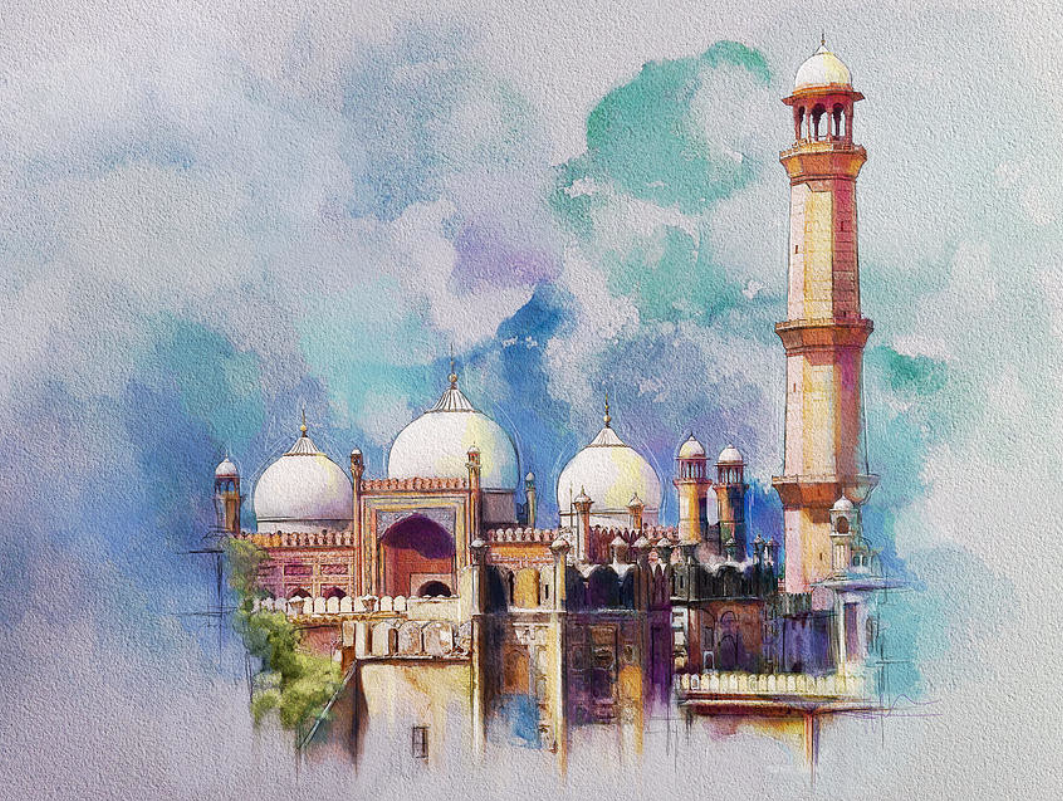Eid-ul-Adha in Saudi Arabia
-Sumaiya Nawshin
Eid-ul-Adha, the “Festival of Sacrifice” is one of the biggest religious festivals for the Muslims. This Eid is also celebrated with lots of happiness and joys all over the world like Eid-ul-Fitr. Every country has some unique ways to celebrate its festivals. Saudi Arabia follows a very different tradition than Bangladesh for Eid-ul-Adha. In Bangladesh, from at least a week before the Eid day, it is a very common scenario to see people on the streets walking their cows, sheep, goats and so on to their home for sacrificing on the Eid. It is also very normal to hear pedestrians asking others about the price of the animal that they have bought. However, these scenes are very rare in Saudi Arabia.
Unlike Bangladeshi traditions, Saudi people do not walk their cows or sheep to their home instead they carry the animals in the back of their car or rent a pickup. Well, there is a reason for this. People in the Saudi are not allowed to keep the animals near their home area. They have to keep the animals till the Eid day in a different place which is far from the human habitation. It is illegal to sacrifice the animals on the roads of the cities to avoid flow of blood or other trashes. This is why the sacrifice is done in deserted areas. In Riyadh, there are not many markets to buy animals from, only limited and specific areas are permitted to sell the animals. Those areas are highly secured by police all around the place. There is a funny misconception that Saudi people only buy camels for Eid. It was partially true during the ancient times, but now in my 7 years of experience, I have not seen that many Saudis to buy only camels. Some Saudis buy both camel and sheep, most of them buy only sheep and very few buy camel just to keep the old tradition. I have also seen Saudi people buying cows only to distribute the meat among the poor, relatives and neighbours and buying sheep only for their own family.
The Eid morning starts with Eid prayer in masjids all over the country. Males, females, children- everyone takes part in the prayer. Then, the next destination from the masjid is not your own home but the place where you’ve kept the animal. Just once in my 7 Eids there, I have gone to one of the deserted areas to see the sacrifice of our animal. Many other Bengali families also had their animals sacrificed over there. It’s a place where you can meet other Bengali families, have some gossips till the meat is being cut and processed for taking home. Some families even arrange for cooking to have the fresh meat for the lunch. It’s like a small get together for various Bengali communities. If you have no relatives living in the same city, those other Bengali families become your new relatives. That’s a different feeling to spend Eid without your relatives or loved ones, far from homeland. In the afternoon or evening of the Eid day, you will see quite a number of Saudis roaming around in their cars to distribute animal meat to the road cleaners, neighbours and even strangers on the street. They really enjoy and feel blessed doing so.
At night, fireworks (in some specified areas) and different fairs can be seen all over the city with numerous numbers of police providing high security. The whole city is seen beautifully decorated with lightings for this festival. All big shops, malls and markets remain closed for 3 days. As it is the Hajj season too in Saudi Arabia, so there are lots of high discounts and offers available from various food shops, electronic items, parks, and so on. For this reason, poor or low income people wait for this opportunity to buy any luxurious item for their family in their homeland. 1st day of Eid is basically spent with the family or visiting the fairs and areas where fireworks take place. 2nd and 3rd day of Eid is usually spent by visiting neighbours, friends, other cities etc. Then from the 4th day, daily robotic life starts again. Schools start to open after 2/3 months of vacation, offices and markets also start to open as usual.
In this way, Eid-ul-Adha is celebrated in almost all over Saudi Arabia though the celebration is done differently in the cities like Makkah, Madina and Mina due to Hajj. Many local residents choose this time of the year to go for Umrah as usually there are fewer crowds in Makkah and Madina. Spending such festival in abroad, away from relatives sure is a different feeling; still it gives some unique, unforgettable memories. Now that Eid-ul-Adha 2019 is almost approaching and I am back in Bangladesh for a year, I am missing those days and drowning in the ocean of memories.

